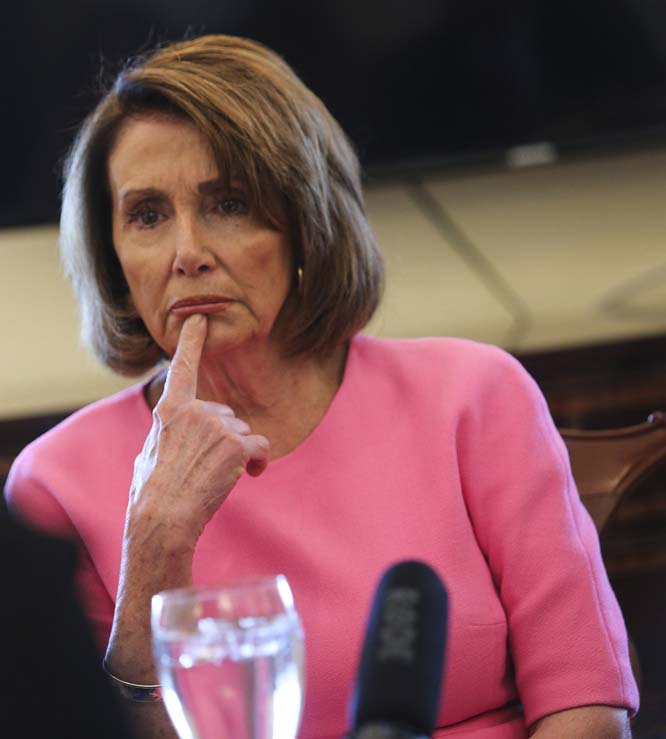 Oliver Contreras for The Washington Post
Oliver Contreras for The Washington Post
It's amazing how complicated simple principles can become when they're inconvenient to your team.
On Sunday, House Minority Leader
Politically, Pelosi's performance was a gift to her many critics. For liberals who think she's passed her sell-by date as a Democratic leader, her hapless effort will now be Exhibit A in the brief against her, despite her subsequent efforts to clean up the mess.
For populists on the left and right who think the political establishment is rigged to protect members of the club, Pelosi's effort to protect Conyers -- and
"We are strengthened by due process," Pelosi insists when the topic is Conyers. But Moore is "a child molester."
This raises the most dismaying gift that Pelosi lobbed to the mob. By circling the wagons around Conyers and Franken (and
It is difficult to exaggerate the anger among many
It was this belief -- hardly unfounded -- that let millions of
This isn't simply a Beltway game. Pelosi is a passionate supporter of Title IX regulations, which have been used to dismantle due process for sexual assault allegations on college campuses. When Education Secretary
But as someone who believes pretty much all the accusers so far, I'm not interested in pecking out another column on partisan hypocrisy. These days, that's the easiest column in the world to write.
Instead, I'd like to point to a possible way out of this mess.
The philosopher
The point of this exercise is to make you think about what fairness looks like. If there's a good chance you're going to be born poor, you might see the point of having certain protections for the poor. If there's a 50 percent chance you'll be born a woman, you'll probably reject the model of society found in "The Handmaid's Tale." In short, the veil of ignorance allows us see justice through the lens of self-interest.
I don't like or agree with everything Rawls and his fans have done with this thought experiment, but the original position is nonetheless a useful way of thinking about society.
We live in a moment beset by tribalisms, from partisanship to myriad forms of identity politics. All of them work on the assumption that neutral rules are unfair or unjust because my tribe is somehow especially noble or your tribe is especially evil.
The original position is not as original to Rawls as some believe. In fact, it's embedded in the very idea of classical liberalism, because it presupposes that we should all be equal in the eyes of God and the government, and that therefore the rules of the society should be fair for everybody -- and applied to everybody equally. It's a simple principle, but everyone wants to make it complicated these days.
Comment by clicking here.
Jonah Goldberg is a fellow at the American Enterprise Institute and editor-at-large of National Review Online.


 Contact The Editor
Contact The Editor
 Articles By This Author
Articles By This Author